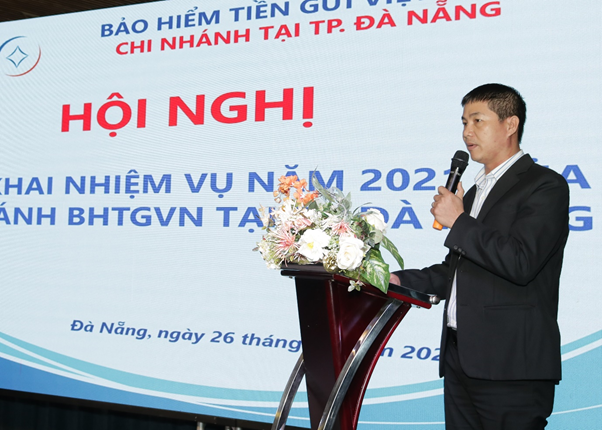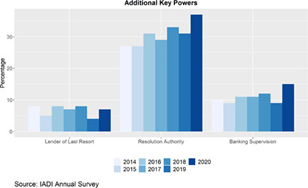thereby contributing to increasing the mobilization of idle capital for improving the standard of living and economic development. To clarify the role and effectiveness of DI policy, our reporter had an interview with Mr. Nguyen Ngoc Tuan - Chairman of the Board of Directors of Nhon Hanh people’s credit fund (PCF), Binh Dinh Province.

Mr. Nguyen Ngoc Tuan - Chairman of the Board of Directors of Nhon Hanh PCF(Binh Dinh province)
Reporter: what do you think about the development of the PCF since its establishment in 1997?
Nhon Hanh PCF was licensed by the SBV’s Binh Dinh provincial branch in accordance with Decision No. 21/QD-NHNN dated May 30, 1997, and has been operating for 24 years. At the beginning, Nhon Hanh PCF faced many difficulties, especially in raising capital because people did not understand the operation of the PCF system in general and Nhon Hanh PCF in particular. Therefore, the amount of the PCF’s mobilized capital was very low, mainly relying on loans from the former Central PCF (currently, the Cooperative Bank).
Since then, in the Fund’s operation, everyone from the leadership to the officers and employees has always well observed the policies, guidelines and laws of the State; well implemented the instructions of the SBV; regularly monitored the developments of the local money market to offer mobilizing interest rates with suitable terms. Therefore, Nhon Hanh PCF has effectively attracted more idle capital from people each year, affirming its prestige and strengthening confidence of people when depositing money at the Fund.
As of December 31, 2020, Nhon Hanh PCF had 2,330 members with the total operational capital of more than VND 61 billion, charter capital of VND 1.4 billion and mobilized capital of VND 47 billion. Outstanding loans reached VND 54 billion. Profits after tax amounted to VND 460 million. The Fund has no overdue and bad debts.The credit quality is safe and effective. The Fund always fulfills its tax obligation to the State, and the rights of the staff and fund contributors are fully guaranteed.
Reporter: In the aforementioned process, how has DI supported Nhon Hanh PCF?
I think that, for Nhon Hanh PCF to achieve the above results, the role of the Deposit Insurance of Vietnam (DIV) is indispensable. The Fund was granted a DI participation certificate by the DIV with the commitment to protecting the legitimate rights and interests of its depositors. Thereby, people's confidence in Nhon Hanh PCF has been strengthened, thus helping the Fund to better mobilize capital.
In addition, the scale of Nhon Hanh PCF has been growing, contributing more positively to poverty reduction as well as to stabilizing and expanding production and business, creating jobs, reducing black credit and improving local people’s living standard.
The DIV’s examination and supervision are effective methods to minimize operational risks. To comply with the law on DI is also to protect the legitimate rights and interests of depositors, maintain the safe and healthy operation of Nhon Hanh PCF.
In addition, the DIV also regularly exchanges with and supports the Fund in effectively implementing the Regulation on information about insured deposits; implementing new regulations and guiding documents on DI.
Reporter: Do you have any recommendations on making DI policy more beneficial to depositors at Nhon Hanh PCF in particular and the PCF system in general?
Drawing on the characteristics of the PCF system, I would like to make some recommendations:
Currently, Nhon Hanh PCF in particular and PCFs in general mainly operate in rural areas. People’s understanding of banking and financial services and DI policy in these areas is still limited. Therefore, the DIV needs to actively collaborate with PCFs to disseminate information about DI policy so that people can better understand it, thereby strengthening depositors' confidence, helping to better mobilize idle capital from people, contributing to building new rural areas, and minimizing black credit in the areas.
PCFs operate for the purpose of supporting the community, so in addition to corporate income tax, the PCFs also have to pay many other fees. Therefore, it is suggested that DIV consider proposing the relevant authorities lower the DI premium rate for the PCF system.
Regarding the DI coverage limit, according to the current regulations, the maximum amount of DI paid for all insured deposits (including principal and interest) of a depositor with an insured institution is up to VND 75 million. This limit is far below the GDP per capita and the level recommended by international practices. In my opinion, it is necessary to soon increase the DI limit or insure 100% of deposits (if there appears a systematic risk).
Reporter: Thank you very much!



























